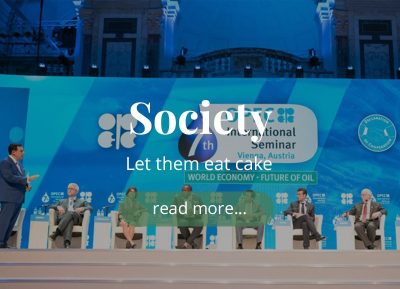Society

At COP28 the conversation is still about money and not feeding the world.
Another year, another COP meeting and the environment is back in the news. COP stands for Convention of Parties and they do party. This gathering of 84,000 people got together in the desert paradise of Dubai for one of the years greatest shows. They flew in from all around the world in private jets to create the grand illusion that there was action being taken for solving the destruction of planet earth.
Industry lobbyists and NGOs all vie for the attention of the politicians and government representatives that approve or block any proposals that might pass muster. As usual, there were a few headline grabbing actions. Millions of dollars were pledged to the Pacific Island nations that totalled to about 2% of what was needed. Oil companies pledged to make their product cleaner (details to come later, much later) and new technologies were explored. Who doesn’t get excited about new technology? What wasn’t talked about was food.
The government/agricultural complex is not going to budge. The rivers and oceans are being poisoned with the agricultural runoff of fertilizers, leaving a lifeless soil. The forests of the world are being cut down to grow food for animals and billions of animals are being kept in barbaric conditions to be killed for our pleasure. The atmosphere is being filled with the methane gas and other greenhouse chemicals that arise from this wasteful and tragic use of resources. All this is done in the name of profit, there is no other rationale. Let them eat cake is the only comment that comes from COP28.
While the delegates could choose “juicy beef”, “slabs of succulent meat” or “melt in your mouth barbeque” the biggest step forward toward climate recovery and repair was not on the menu. Everyone is afraid to call out the stupidity, the greed and violence inherent in the killing of animals for eating.
There were three times as many lobbyists from agricultural interests than ever before. The dairy industry alone had 120 delegates. Food manufacturers and pesticide companies were given free rein to rub shoulders with the diplomats and decision makers to remind them of their monetary power.
Ben Lilliston, of the Institute for Agriculture and Trade Policy, said: “With greater scrutiny over emissions from meat and dairy companies, it is not surprising they are stepping up their game to head off any Cop outcome that might hinder their operations. Even so, a tripling of delegates is alarming – it drives home the urgent need for reforms that limit corporate influence at UN climate meetings.”
Animal agriculture is the leading cause of ecological destruction because it uses 37% of the ice-free land area of the planet just to graze animals [1], while bottom trawling an area of the ocean floor the size of South America every year for industrial fishing [2].
It is estimated that one-third of global greenhouse gas is a result of the meat and dairy industry. They are also the cause of the most environmental damage in terms of deforestation, biodiversity loss, pandemic risk, and water pollution.
Dairy production alone emits more greenhouse gasses than the global aviation industry. Governments are too weak and financially invested in this tragic waste of life and resource to act, it is only the actions of individuals that can turn the tide. The only solution is to stop eating animals and support a new approach to feeding the world that is healthy for society and the environment.
WHAT WE CAN DO
There is no single issue that illustrates how our cultural enchantments pull us away from a healthy relationship with the planet than our attitudes regarding what we eat. Here are things that we can do right away to help turn the tide and be on the right side of history:
- Stop consuming all animal products. Mammal meat, chicken, pork, dairy, eggs, fish, and all animal foods raised, free-range or wild caught are harmful to the ecology of the planet and human health.
- Support Organic & Veganic Growers. Start to support those farmers who are taking care of the land. Eat organically and veganically raised foods as much as possible. Plant based foods have a much smaller carbon footprint and require less water and land to produce.
- Download our free eBook, The Human Ecology Diet: https://humanecologyproject.com/what-to-eat/ and learn the way to create a healthy and diverse diet for you and your family.
- Be a happy advocate for a vegan world. No need to attack, prove it can be done by your daily actions. Share information with those who are open for a conversation, be informed.
- Don’t wait, do it now.
[1] https://www.ipcc.ch/site/assets/uploads/2019/08/Fullreport-1.pdf
[2] https://marine-conservation.org/archive/mcbi/Watling_&_Norse_1998.pdf

